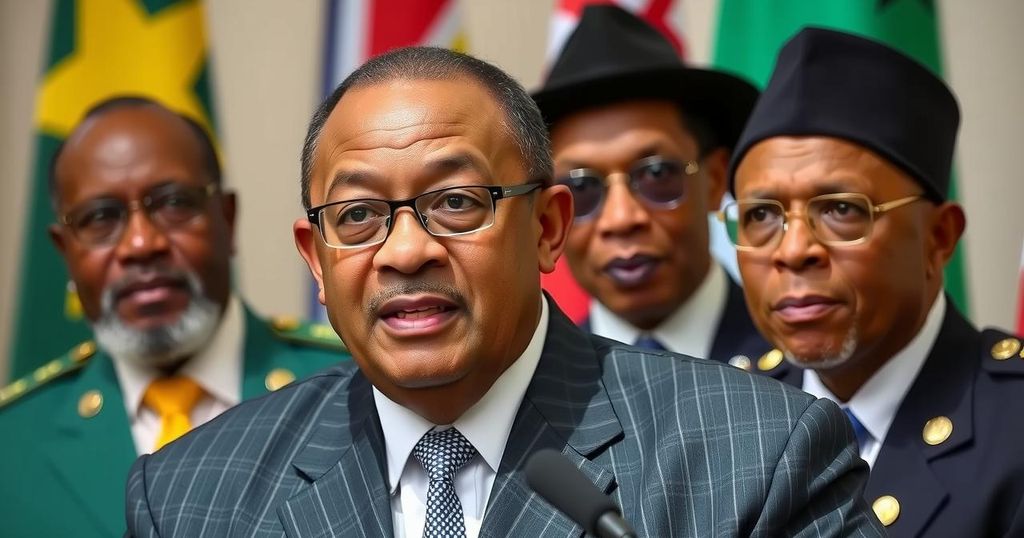President Salva Kiir has dismissed South Sudan’s army chief, the central bank governor, and other key officials. Gen. Santino Deng Wol is replaced by Gen. Paul Nang Majok as army chief, while Johnny Ohisa Damian replaces James Alic Garang as Bank governor. Other appointments include Gen. Abraham Peter Manyuat as Police Inspector General. The reasons for these changes remain undisclosed, coinciding with a recent violent incident involving the former intelligence director.
On December 9, 2024, South Sudan President Salva Kiir executed significant changes within the military and financial leadership of the nation. Gen. Santino Deng Wol was dismissed from his position as the army chief of staff, with Gen. Paul Nang Majok appointed as his successor. Concurrently, Kiir removed James Alic Garang Alic from his role as the governor of the Bank of South Sudan, replacing him with Johnny Ohisa Damian, who had previously held the position. Furthermore, Gen. Abraham Peter Manyuat was appointed as the new Inspector General of the South Sudan Police Service, taking over from Gen. Atem Marol Biar. These shifts also saw Garang Majak relieved from his duties as the first undersecretary at the Finance Ministry and succeeded by Arop Nuoi Arop.
The announcements were made during televised broadcasts on state-owned South Sudan Broadcasting Corporation (SSBC) and did not offer any rationale behind the leadership changes. This wave of dismissals comes on the heels of a tragic shootout at the residence of former intelligence director Gen. Akol Koor Kuc, which left four individuals dead and multiple others injured, leading to ongoing investigations ordered by President Kiir. It remains uncertain whether the recent appointments in the military and banking sectors are connected to this violent incident.
This latest round of leadership changes in South Sudan’s army and financial institutions highlights President Kiir’s efforts to address internal security and governance concerns. The backdrop of violence and instability in the region, including the aforementioned shootings, necessitates a careful examination of these leadership shifts and their potential implications for national security and financial stability. Historical precedents in South Sudan indicate that alterations in military and government leadership can dictate future peacebuilding efforts and governmental reform initiatives.
South Sudan, the world’s youngest nation, has faced ongoing challenges since gaining independence in 2011, including political strife, economic instability, and security issues predominantly rooted in civil conflict. President Salva Kiir’s administration has frequently experienced shifts in military and government leadership, driven by the need to respond to both internal and external pressures. The recent incident involving the former intelligence director has further highlighted the precarious security situation in the country, prompting the president to take decisive actions to reconfigure key leadership roles.
In summary, President Salva Kiir’s recent overhaul of South Sudan’s military and financial leadership underscores the government’s response to ongoing security challenges and the necessity of stability amidst turmoil. The absence of provided reasons for the changes raises questions about the motivations behind these shifts. However, they may signal a strategic move to enhance the response to security concerns and manage the socio-political landscape within the country effectively.
Original Source: sudantribune.com






